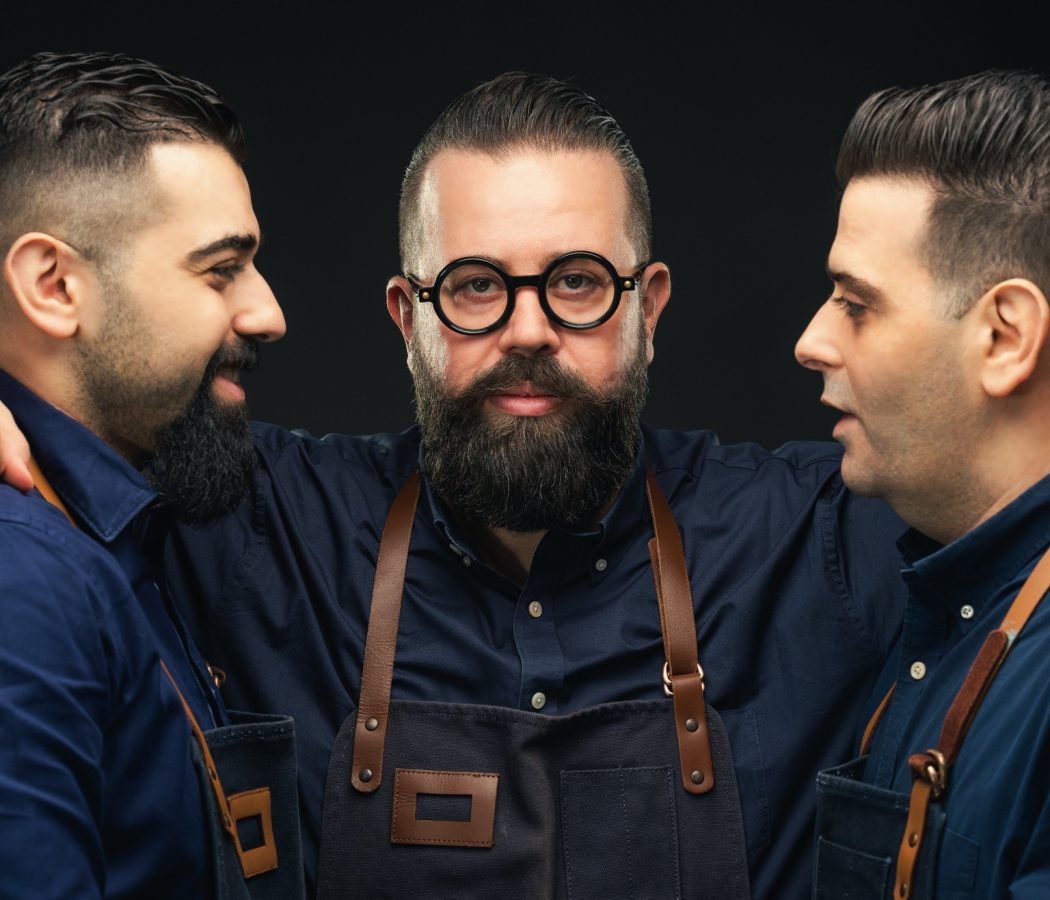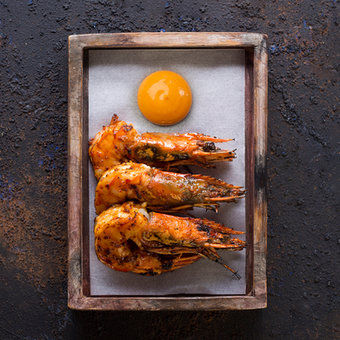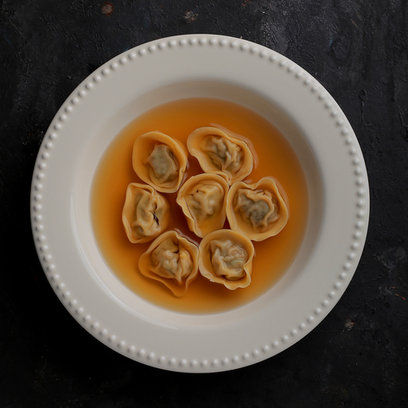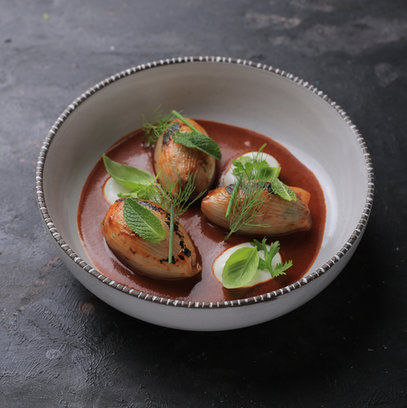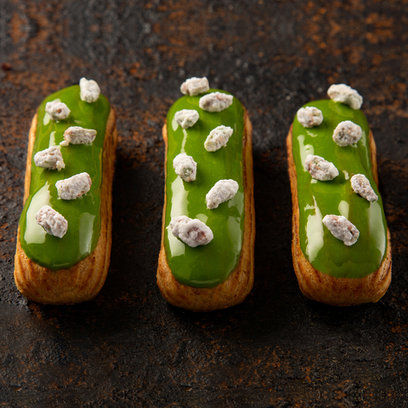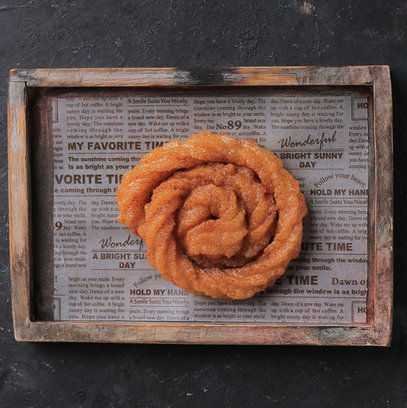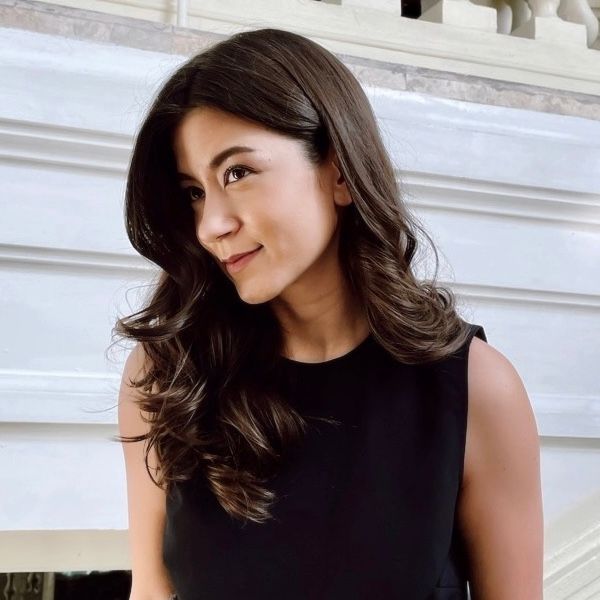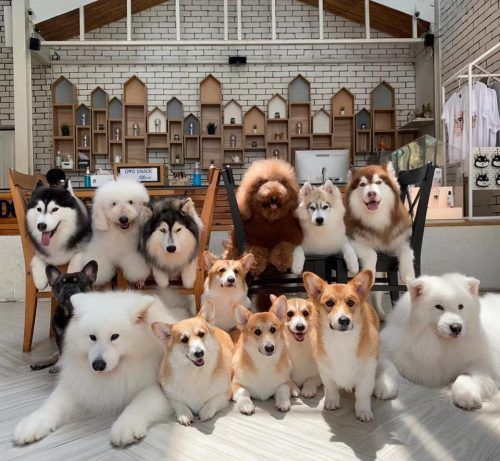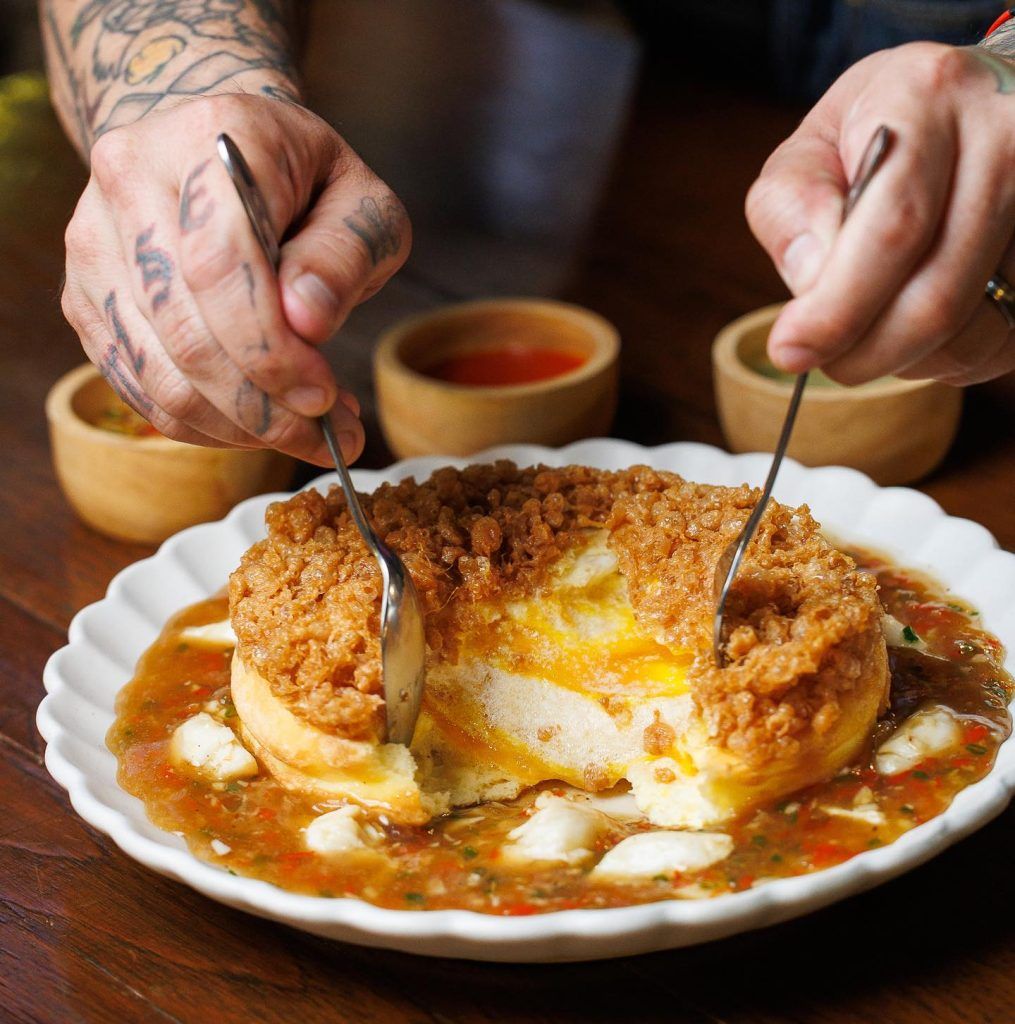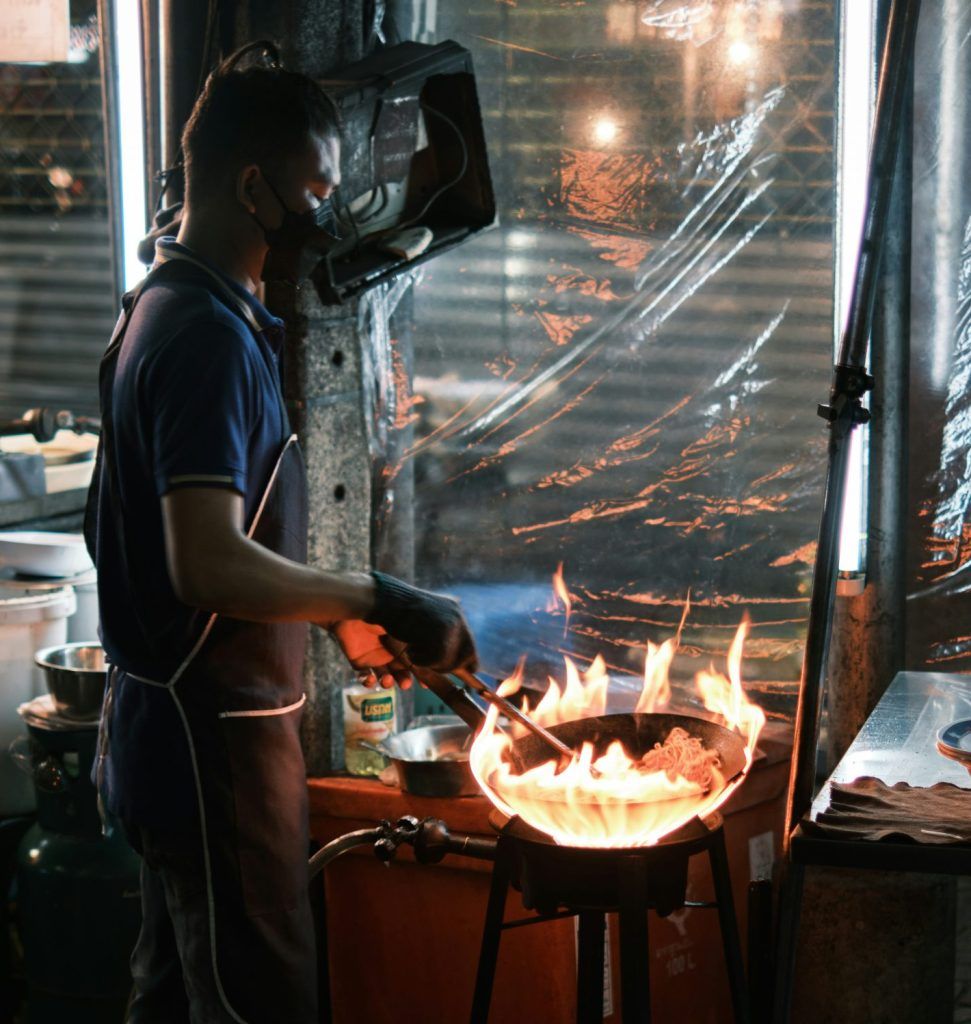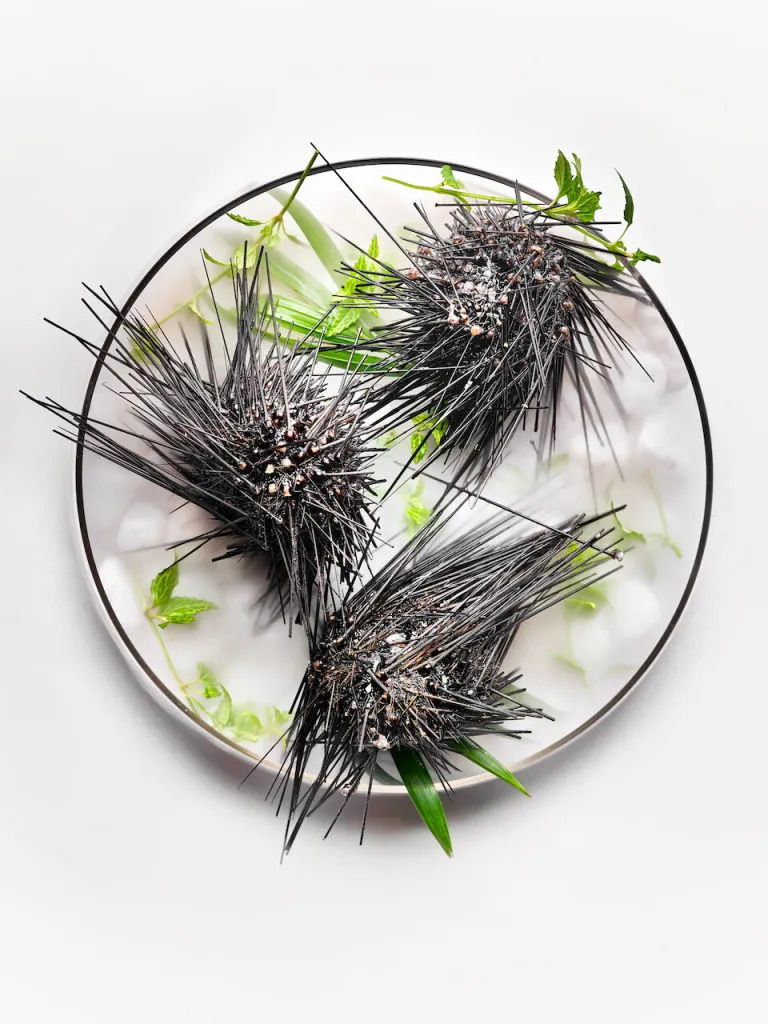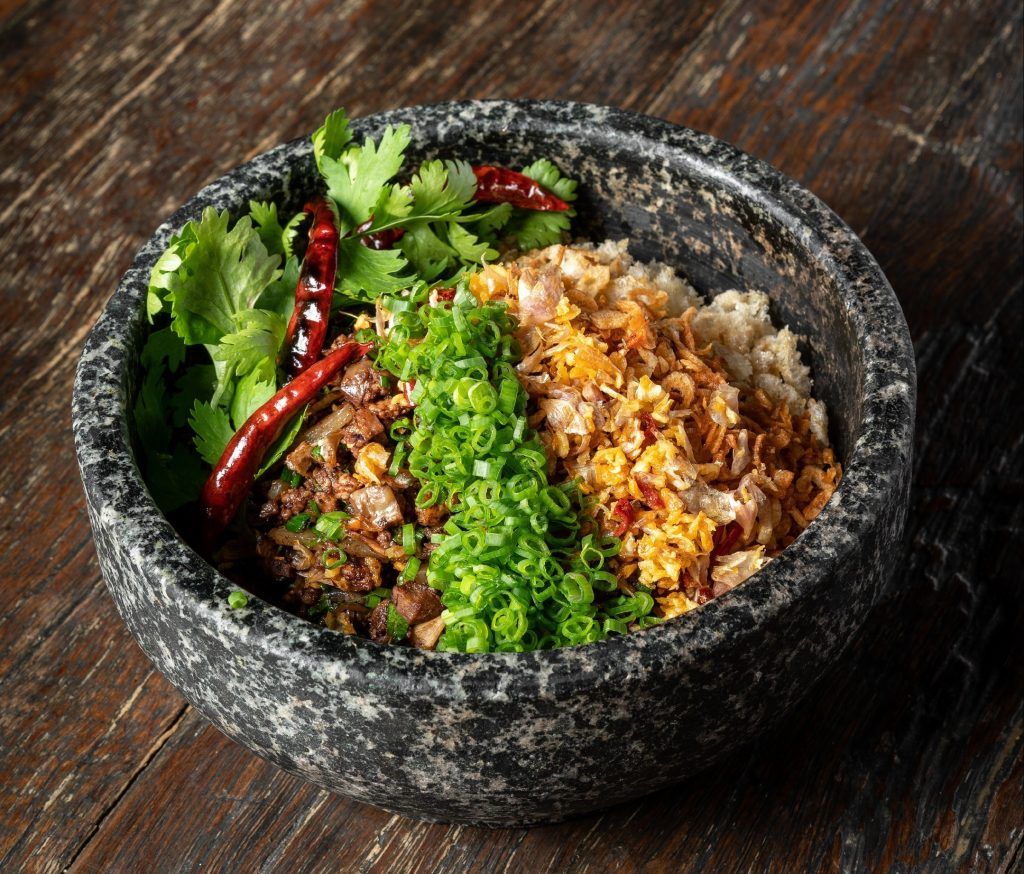What stories lie behind the dark-rimmed glasses of one of Dubai’s most famous chefs? We sit down for a chat with Mohammad Orfali, one of the three brothers behind the Orfali Bros Bistro, the restaurant crowned the best in the Middle East and North Africa this year. Read on for what the Syrian celebrity chef and “community cuisine” ambassador has to say about the power of food, the importance of family, and the invaluable connection between the two.
At the end of last month, Chef Deepanker Khosla and his Michelin-starred, neo-Indian Haoma restaurant joined hands with Mohammad Orfali of Dubai’s Orfali Bros Bistro. A special two-night collaboration, it was the first time that the Orfali Bros appeared in Bangkok for a pop-up, and the first visit of Mohammad Orfali to Thailand. In our chat, we were assured it would not be his last.
[Hero and Featured Image Credit: Orfali Bros]

The story of the Orfali Bros Bistro is nothing short of impressive. Just 2 years after opening, the restaurant has been ranked at No. 46 on the World’s 50 Best Restaurants list, and at No.1 on the list for the 50 Best Restaurants in the Middle East and North Africa in 2023. The restaurant is helmed by three brothers — Wassim, Omar, and Mohammad — who tell the story of their homeland of Syria through a variety of modern dishes.
From a multi-cultural city like Dubai to a multi-coloured city like Bangkok, we were curious to understand Chef Mohammad’s approach to his work, and his recipe to success in such a competitive culinary space. With a deep respect for history and heritage, and the wonderfully humane belief that we are all connected in some way, read on for our conversation with Mohammad Orfali as he details his humble beginnings, his rise to celebrity chef, and his unique philosophy on food and family as a sense of identity.
Q&A: Mohammad Orfali of Orfali Bros Bistro on food and family as a sense of identity

Welcome to Bangkok, Mohammad! For those of us who haven’t been to your restaurant in Dubai, please tell us a little about the Orfali Bros Bistro.
The food we serve at Orfali is modernised without losing the spirit, the essence, or the soul of Syrian food. We serve what we call “bistronomy,” because we combine bistro style with gastronomy. When you eat here, you get high quality ingredients and thought or technique, but we make it affordable for everyone. It’s kind of a revolution in the fine dining industry — turning it into fun dining.
We keep it refined or modern. Let’s say we use a different technique, or we work on textures. We are not homogenising the flavour, it’s just a different perspective. It’s like that even here with Chef DK; it’s modern but you can still taste the curry, the flavours, the spices, the fat, the ghee.
What is Syrian cuisine like?
Aleppo is one of the oldest cities in the world, and has about 9000 years of culture, layers of ingredients over the centuries, that drive the food to what it is today. Our cuisine is very rich. We are very sustainable, very seasonal. We also have a lot of diversity, and there are a lot of specialists, too. We source from cheesemakers, bread makers, butchers, and hand craft shops.
We are not really Mediterranean. We are the fundamentals of Mediterranean food. Starting from the kebabs, which come from the Aramic culture to the Syrian culture, to the so many cultures in that landscape. Of course, the most authentic cuisine you can taste comes from home.
Do you believe there is a link between the food we eat and our identity?
Absolutely. We serve the food [at Orfali Bros Bistro] with a lot of story behind it, and we bring the story to our guests. The menu shows our roots, and who we are. We don’t serve Syrian cuisine. We serve Orfali cuisine. We are modern chefs with modern thoughts.
Our interior design even has broken edges, so we use the broken edge to show people that we are not old school, from design to food.
Growing up in Syria, did you always want to become a chef?
Nowadays it’s quite common, but before it wasn’t common to become a chef. In 1980, it was shameful for my mum. She did not accept it at all. She’s a teacher, and my father is an engineer. We were a famous and big family in Syria, so for them it was very shameful. When I worked in a restaurant, they wouldn’t come to the restaurant. This was in 1994 or 1995.
No one believed in chefs, so I decided to go to Dubai in 2005. I went there to learn English, because my English wasn’t that great. From there I went to Europe, to Italy, to France, to Spain, to Scandinavia, and to different countries in Asia.
Do you see any connections between Asia and Aleppo?
I find that you and I, we eat the same, but with a different name.
When I started studying my roots, I found that so many things came from Asia, when the immigrant Chinese moved to Syria 300 years ago because of the traders on the Silk Road. The Silk Road changed the world. It introduced ingredients from culture to culture. Travellers carried these with them from city to city.
Aleppo was the assembling point for the Silk Road, so imagine how much we get from Asia, from India, from Persia, from Africa, and from Europe. It’s all in one city. The result is very overwhelming: delicious food, that is inspired by so many cultures.
How about the food culture in Dubai?
Dubai has changed a lot since when I arrived. My restaurant opened 2 years ago, after the pandemic. After Covid, it was difficult. Luckily, Dubai was very open, and we were back to 50% capacity within 3-4 months after the lockdown. All the businessmen and restauranteurs helped us go back to business. My guests are about 70% locals and expats, and 25% tourists. The people who live here have the power to spend. Everything is well-paid, and this makes the restaurant business work well.
The agriculture in Dubai is also improving day by day. When I first moved here, we had 2-3 farms, and now we have plenty of farms, and local ingredients. You wouldn’t believe this is Dubai. I’m talking about tomatoes planted in the sand!
We try to get local produce from Dubai or from Al Ain, the city between Dubai and Abu Dhabi. We have seasons. From October to March, we have good produce. We have a lot of hydroponic and aquaponic farms, too.

How do you combine the modern essence of Dubai with the heritage of your Syrian identity at Orfali Bros?
Sometimes people see that we are Syrian, and they think our restaurant is Syrian. Before Orfali Bros, I was working with the Discovery Network for 12 years. I have many cooking shows in the Middle East. The challenge for me was when they see you as a TV chef, how can you take that to a 50 Best or Michelin concept?
It was very tough at the beginning to tell people what we were doing. They felt like we were a fusion restaurant. There was confusion!
Orfali Bros is something new for Dubai. It never existed before. That’s why we call it “community cuisine,” where we serve food for everyone. In one slot at Orfali, you can find Asians from different cities. You can also have Italians and British customers, over to Syrian, Lebanese, Emiratis, or Saudis. How do we bring them all together? That’s my cuisine.

What is it like to work with your brothers?
Oh my god, it was not that fun in the beginning.
We had a lot of fights to find the synergy between the three of us. You know, we are three chefs but we never worked together. In 2015, we created Orfali Bros as a concept. We used to give masterclasses before the restaurant.
Everyone had different perspectives and everyone thought they were right. Now, I lead when it comes to business, but we still have some fights. You know, we live together too, with the family. We go back home and we’re still like “I told you so! If you put this and this, it would taste and work perfectly!”
At the same time, I feel blessed to work with family, and to see them next to me is incredible. At the end, we have one goal, and that is to refine what we serve to our guests, and to be on top of the game.

What are you enjoying most here in Thailand? How does it compare to Dubai?
This is our first time here, but not our last time. We love the energy here. Even at midnight, it is busy and I love it. Dubai is the same. Dubai is a busy city. That’s what I love about Bangkok and Dubai.
Bangkok has a lot of diversity. A lot of chefs from around the world are coming here because you guys have a lot of good ingredients and diversity of people. I keep eating from morning until evening in Bangkok.
Dubai has the same things, and we have people who want to spend. Before, it was a city where people went to enjoy the nice weather in the winter, visit the beach, and go shopping. Now it has changed. Now people travel for food. We have Bib Gourmand and Michelin star restaurants.
Dubai Mall has 400 restaurants. Dubai Mall alone. If you want to spend money, between the food court to the fancy restaurants, I call it a paradise of restaurants.

What are your plans for the future?
Our dream for Orfali Bros is to hopefully open a school, and then we’ll take this school to Aleppo. We will show people our Syrian heritage and Syrian culinary. We will show them how we can practice sustainability and seasonality with our food.
Will we be so lucky to see an Orfali Bros outpost in Bangkok sometime soon?
If we have it in Bangkok, we’d have a different concept for Bangkok. We would want to be homegrown. I don’t want to take a concept from Dubai to Bangkok. I would do a concept specifically for Bangkok, to fit the market and the palate of the local people. This is the most important thing: to adapt and understand the market.
Find out more at Orfali Bros Bistro and at Haoma Bangkok.

